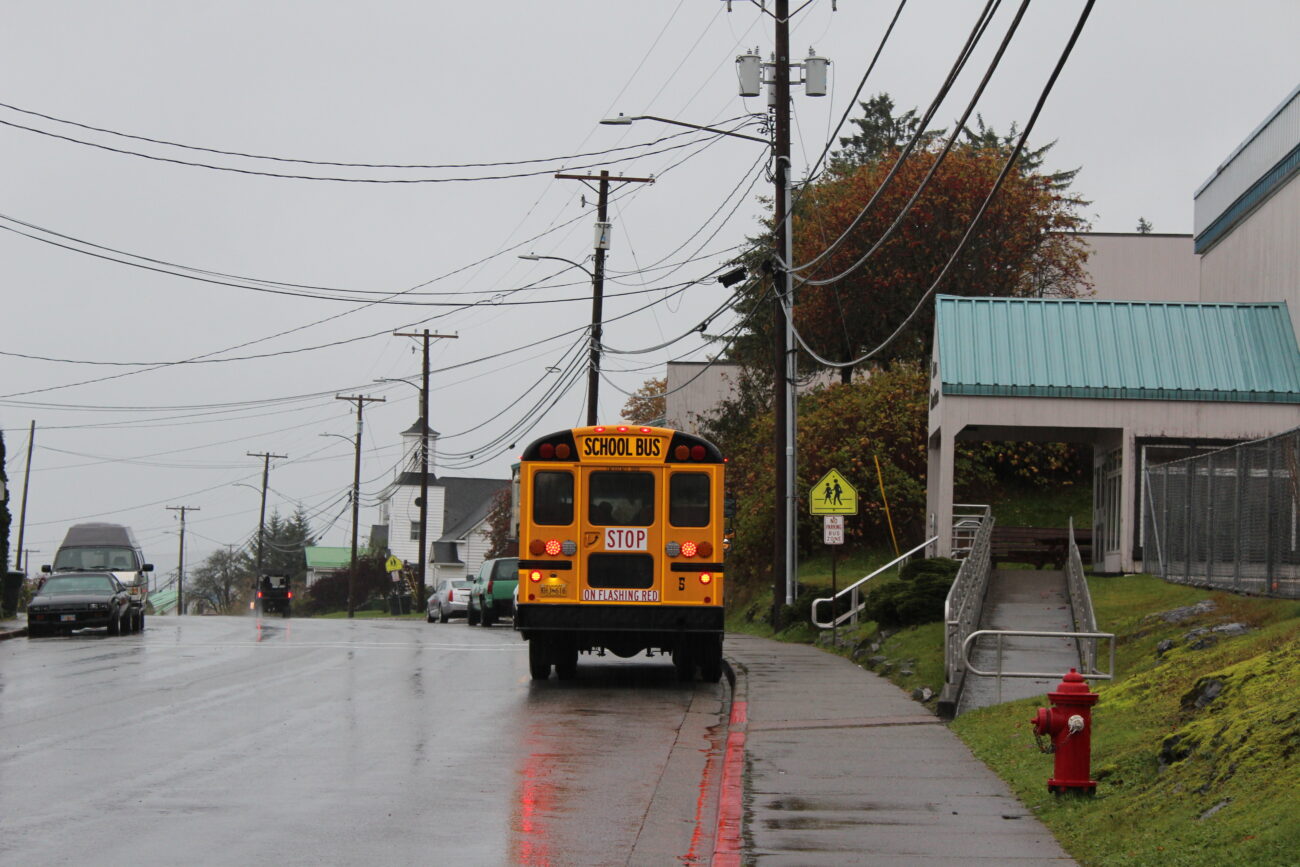
(Sage Smiley / KSTK)
Last fall, Wrangell Public Schools was selected as the only school district in Alaska to receive federal grant funding for an electric school bus. But the district is having some trouble fulfilling the requirements of the grant.
The grant is meant to get old diesel-fuel school buses off the road by helping districts to purchase electric buses and charging infrastructure. To receive reimbursements for the new vehicles, districts have to prove they’ve junked previously-used buses.
The issue is that Wrangell’s three public schools contract with a local company, Taylor Transportation, for bus service. To receive a rebate for an electric bus, that private company would have had to destroy one of their buses – something Superintendent Bill Burr says the company decided was not in their best interest. That put the district’s bus grant in jeopardy.
“Since we don’t run a bus company, we’re looking at the possibility of purchasing a school bus somewhere else, having it disabled and getting the [electric] school bus ourselves, as well as the electric bus charging station,” Burr explains. “I had requested from the EPA: ‘Can I do this? Is this possible?’ They got back to me and said, ‘Well, we don’t see why you can’t.’ So kind of paving a new way, I guess, of meeting the grant.”
The Environmental Protection Agency gave Wrangell an extension on the grant window until the end of this month. It’s a tight turnaround, but the school board has given Burr the go-ahead to keep trying to work out a solution.
The cost of an old bus can vary widely depending on where it’s bought from. Burr says the district has looked in southern California, where old school buses can sell on public surplus sites for around $1,000. Up in Alaska, he says his search has turned up old buses closer to $8-$10,000.
“First Student, which owns the contract of quite a few districts in Alaska, changed out their buses this year,” Burr says, “So there are some buses available even in the state. But there are always buses in the Lower 48 as well.”
He continues: “They have to fit certain requirements of age, that they were diesel, they were running students for the last two years, that they have to be taken out of service. And there are specific agreements with EPA on what makes a disabled bus. So you don’t have to show them a crushed bus; there are certain ways that would make that bus inoperable according to the EPA.”
So, the district has about two weeks to find an old bus in a workable price range, buy it, have someone disable it, get the disabled bus approved by the EPA, and order an electric school bus to the island.
Burr says it’s a lot that needs to fall into line, but he wants to do his best to make the grant work.
“But we also have to be good stewards of both ours and federal money,” Burr adds, “So if we can’t do it, I don’t want to do it partway.”
If Wrangell Public Schools can tick the boxes on the list up to purchasing an electric bus, the bus and its charging setup don’t actually have to be up and running until October of next year.
Get in touch with KSTK at news@kstk.org or (907) 874-2345.












